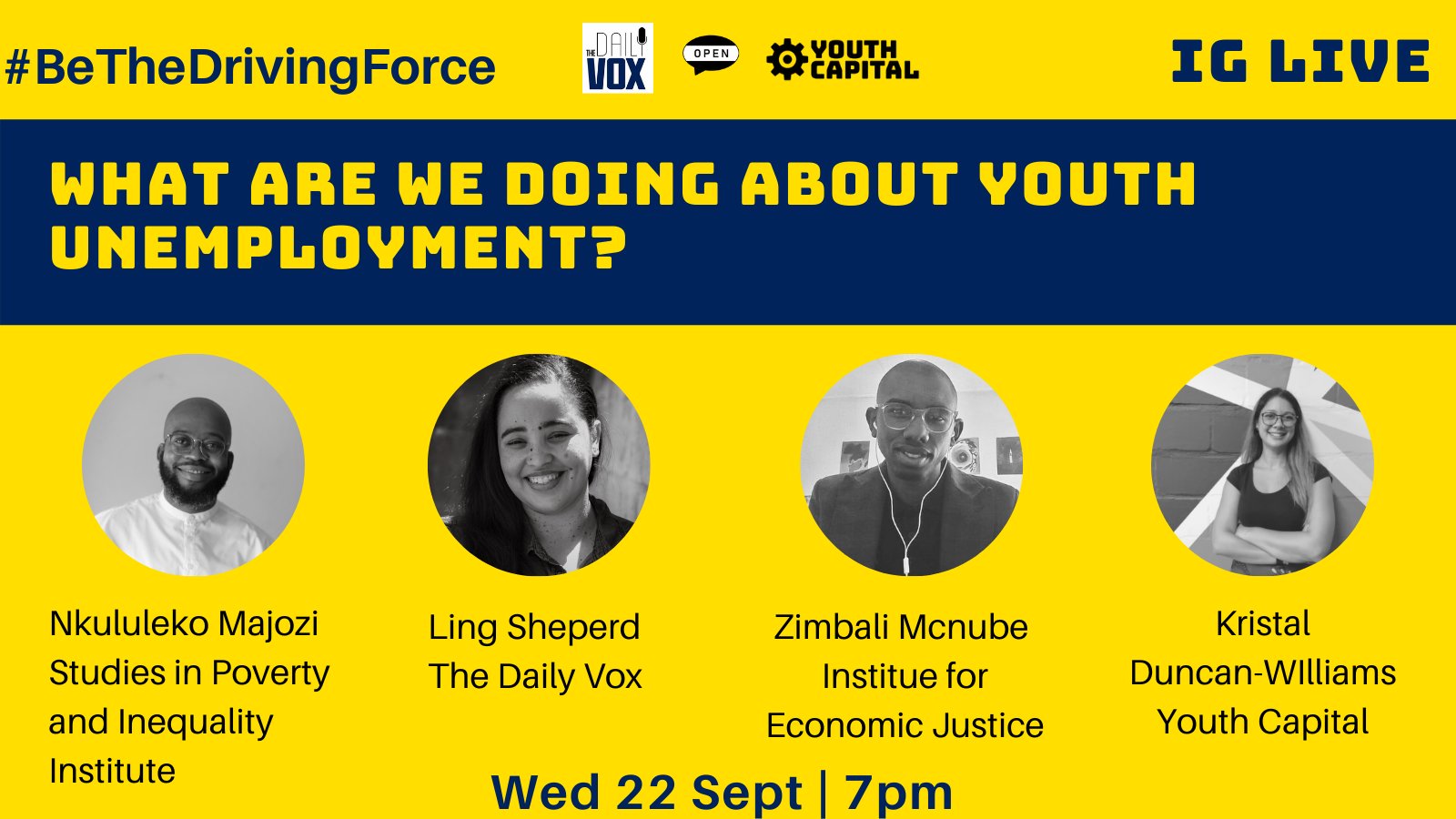The DailyVox: Youth Unemployment in South Africa


We all read the stats – youth unemployment is a ticking bomb- but what are we actually doing to ensure that young SA have the skills, opportunity and support to find and maintain employment? In this conversation, we go deep to unveil what the budget researchers say about our response to youth unemployment; but with young people’s views and lived experiences at the centre.
Zimbali Mncube is a Social Justice Activist & Researcher.
Nkululeko Majozi, Social Security Researcher at the Studies in Poverty and Inequality Institute.
Kristal Duncan-Williams is the project lead at Youth Capital.
The Instagram Live kicked off with Duncan-Williams and Mncube discussing challenges youth face. Duncan-Willaims mentioned the roadblocks like a lack of social and academic support. Mncube focused on the budget cuts in the education sector at a national level. He used the example of the 3.6 billion rand cut in expenditure for education in Kwazulu-Natal (KZN).
MEC for Education Kwazi Mshengu said the cut would leave learners in the province with fewer teachers, and teachers still in the system with increased workloads. He said they would continue to engage the National Treasury to mitigate the budget cut crisis.
Once Majozi joined the IG Live the discussion moved toward what public employment programmes are in practice, and how they have failed and succeeded. Everyone agreed that while these programmes have a good foundation, the longevity is almost non-existent. Public works programmes seem to not have a post-employment phase to keep the youth employed.
In terms of the basic income grant (BIG), Mncube and Majozi expressed hopes that it would address poverty and inequality directly with this practical economic boost. Mncube said we need to interrogate budgets, and ask whose voices are being centered?
Majozi said budgets are not youth-friendly, and that the current Covid-19 relief grant of R350 wasn’t enough. It does not match the current food poverty line. The food poverty line is R624 per person per month. It is the amount of money that an individual needs for the minimum required daily energy intake. Duncan-Williams said solutions must come from young people, and youth should be at decision-making tables.
Catch the full discussion here for more highlights.
Source: The DailyVox